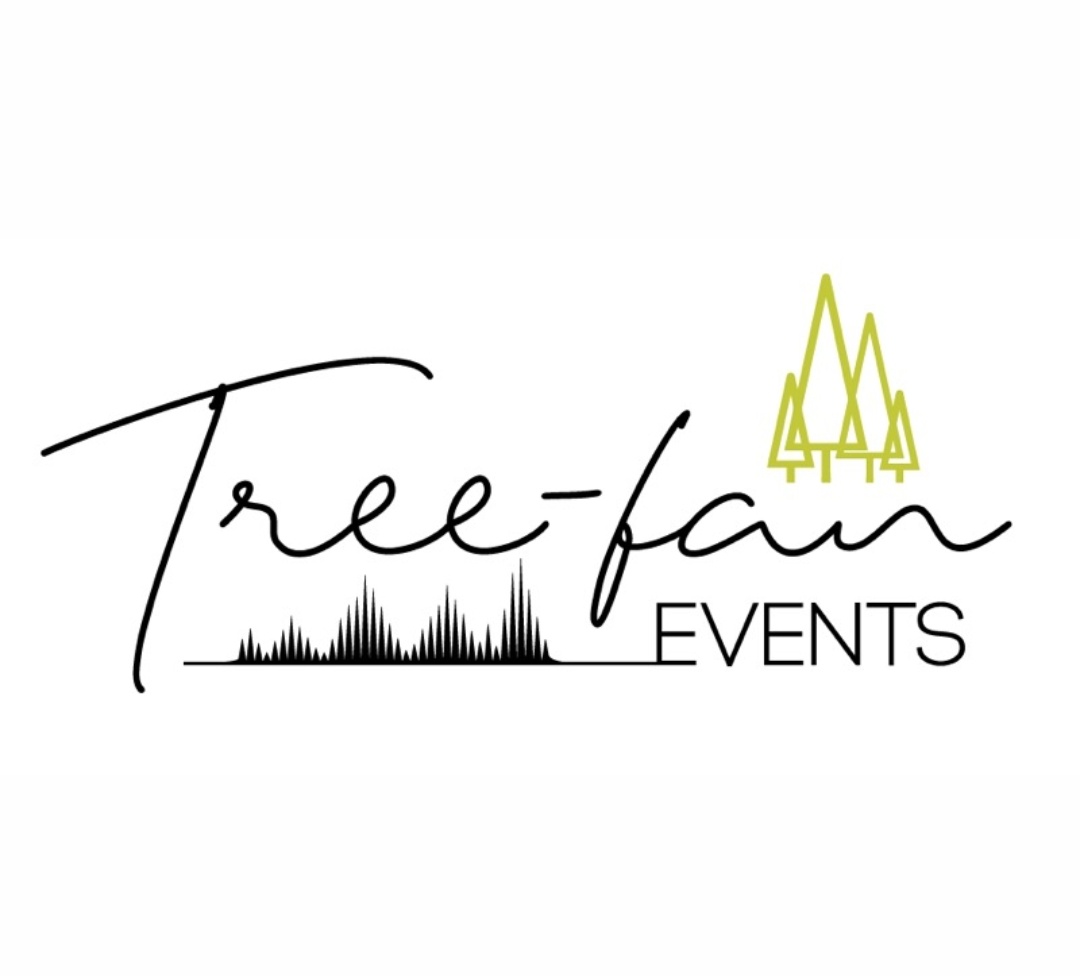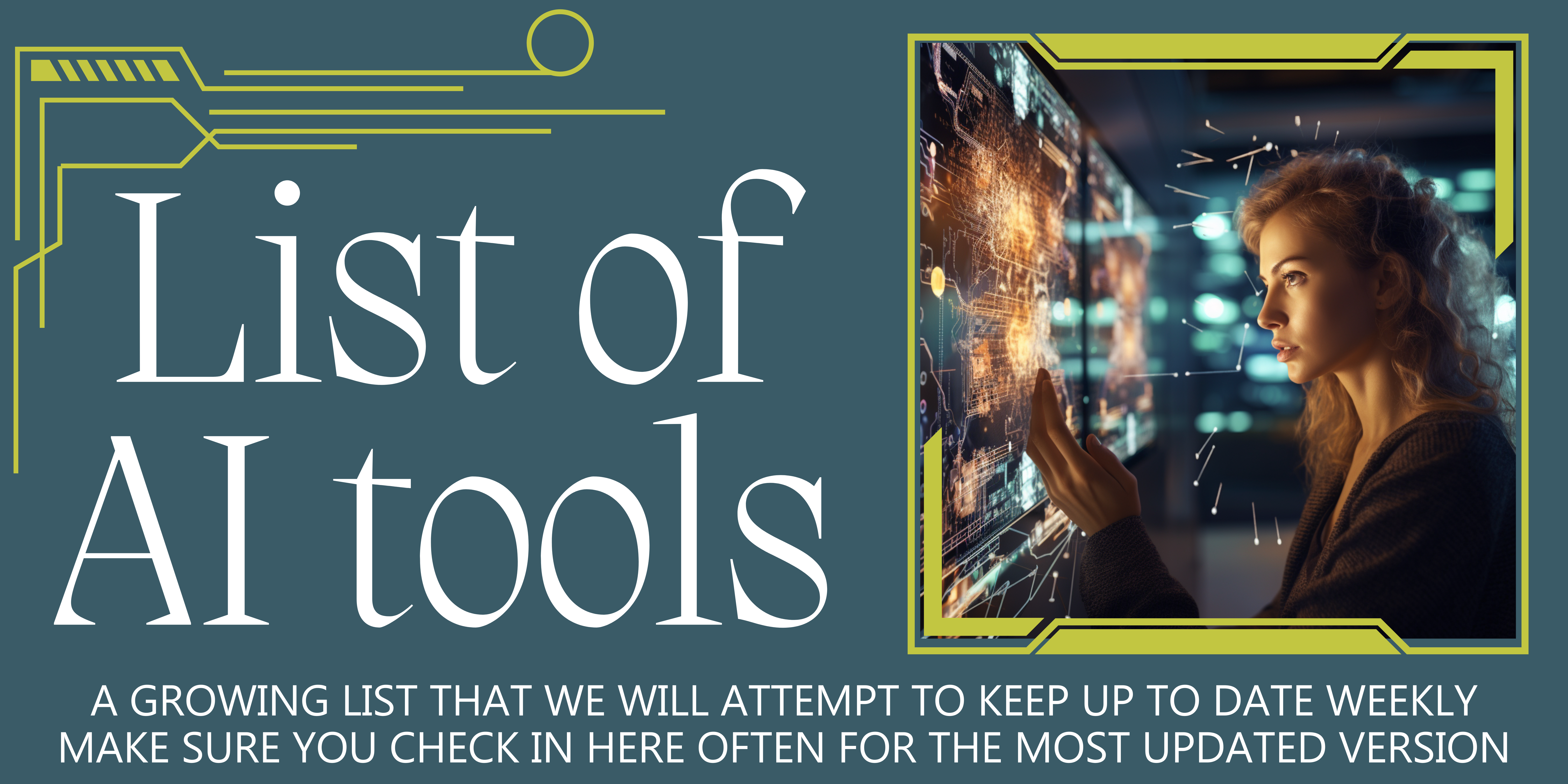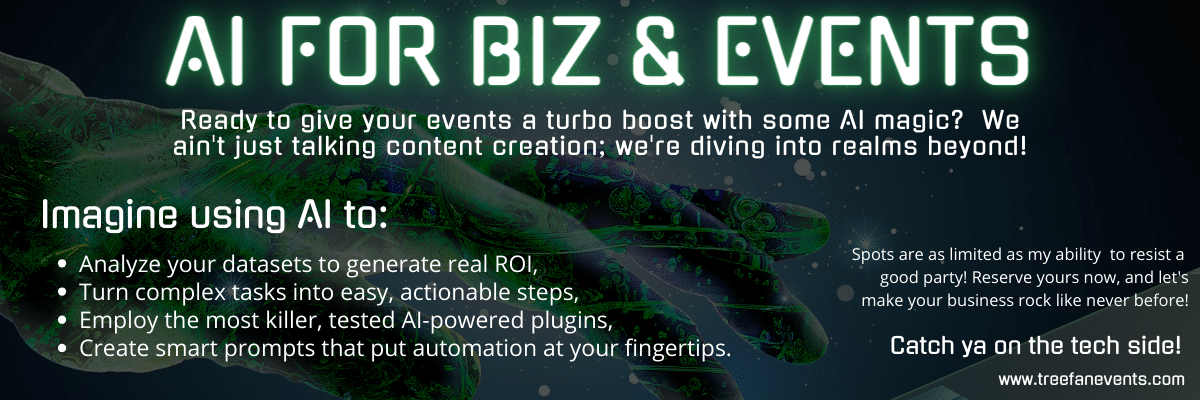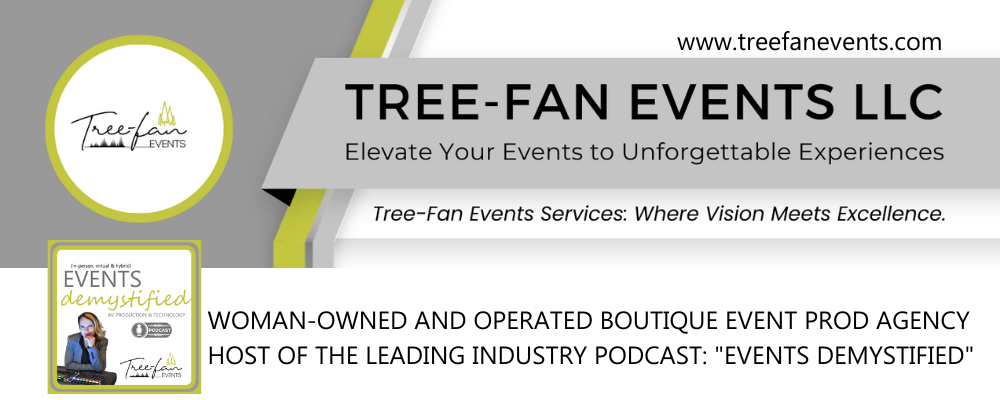
By now we all know that AI is NOT a magic bullet; its value and accuracy hinge on the data it’s trained on, and it’s not a substitute for human insight. But while it has its limitations, there’s incredible potential here. Today we are going to delve into the topic “Unpackng AI’s Impact on the Attendee Experience” with Huong Nguyen, founder and CEO of Shiloh Events, a conversation we’ve had on the Events Demystified Podcast recently during which we debunked myths and layed out the real future of AI in event planning and execution, where AI shines and where it doesn’t, and how we can make the most of this technology.
AI’s Limitations And Future Potential.
There’s a buzz about using Artificial Intelligence (AI) to level up our events, but let’s hit pause and get real for a sec. AI isn’t some kind of super brain. it can only work with what we teach it. It doesn’t come up with out-of-the-box ideas, and it’s only as good as the info we feed it. But don’t get bummed! Things are looking up because we’re finding new ways to teach AI so it can help us even more in the future. Just remember, it’s not about kicking people out of the planning process. Think of AI as a sidekick that makes our jobs easier, not a superhero replacement!
Key Takeaways:
- AI Isn’t a Know-It-All: AI doesn’t come up with its own ideas or knowledge. It’s limited to what it’s been taught, so it doesn’t have original thoughts or creative ideas.
- AI Doesn’t Know Everything: Some people think AI knows everything, but that’s a myth. It’s only as good as the info it’s been given, so we’ve gotta double-check what it tells us.
- Bright Future for AI in Event Planning: Even with these limits, AI has a lot to offer for our events. We’re teaching it to be more helpful and to understand our needs better, which means it’ll get faster and smarter at handling info.
- AI: Our Helpful Buddy, Not Our Replacement: AI isn’t here to take over our jobs. It’s a helper, not a replacement for the human touch we bring to event planning. It’s there to give us a hand in making events even more awesome.
Elevate Event Thinking For Success.
Let’s talk about taking our event planning game to the next level. It’s super easy to get lost in the details of planning, you know, ticking off tasks and whatnot. But if we want our events to really stand out, we’ve got to start thinking big. more strategy, less just going through the motions. It’s all about understanding the deeper reasons we’re hosting these get-togethers and then making sure every decision lines up with those big goals. And hey, it’s not just about throwing a memorable party; it’s about making sure our events make waves, bring in the bucks, and have a real impact
Key Takeaways:
- Remember the “Why”: We need to keep asking ourselves why we’re throwing the event in the first place. What’s the big goal here? Keeping that in mind helps make sure our events aren’t just fun, but also meaningful and goal-driven.
- Think Big Picture: Sure, details are important, but we’ve got to lift our heads and think about the overall attendee experience. How does everything we’re doing fit into the larger goals we’re trying to achieve?
- Keep Getting Better: Just because one event rocked doesn’t mean we can’t make the next one even better. By always looking back and learning from what we’ve done, we can keep improving and making each event more successful than the last.
- Strategy Over Tactics: It’s time to move from just ticking tasks off a list to really thinking strategically about our events. That means all our decisions and actions should line up with our event’s goals and objectives, making every gathering we plan not only enjoyable but also impactful and successful.
Goal And Passion Drive Collaboration.
Diving into successful events, clear goals mixed with deep passion are important. It’s not just about making money; it’s about connecting with people, nurturing community vibes, and crafting unforgettable moments. Be clear on your goal. Sure, make money, but remember, goals like promoting diversity and creating networking chances are just as vital. Your tech and choices should reflect these aims, guiding you to pick what truly matches your objectives.
Passion changes everything. It pushes you from just doing tasks to fully owning your projects, driving you to always aim higher. Your energy and dedication? They’re contagious, making your event a winner. Collaboration is key. Agencies and organizers need to work as one. Agencies should get the client’s goals, speak their language, and act before problems pop up. It’s about being a true extension of the client’s team. Smooth events need more than teamwork; they require smart planning and action. Start with a solid plan and clear budget. Show the client the way, sparking confidence and clarity, even if the first draft isn’t perfect.
Key Takeaways:
- Clear Goals are Key: Know what you want to achieve beyond just profit. Align your tools and strategies with your objectives.
- Passion Makes a Difference: Love what you do. It fuels improvement and success.
Collaboration is Crucial: Agencies and organizers should work tightly together, understanding each other deeply.
- Smart Planning is Essential: Lay out a clear plan and budget to guide the event and instill confidence.
Choosing The Right Event Tech.
Event professionals face a tech jungle out there so many choices for every event! The trick? Strategic planning and a clear vision. Know your event’s goals and who’s coming to make tech work for you, not confuse you. Start with the end in mind: what’s the event’s mission? Who are we inviting, and what’s our dream outcome for them? Answering these sets the stage for tech that amplifies your event, not just adds noise.
Now, when swimming through tech options, focus on four beacons to guide you. First up: functionalities. Does the tech have networking features, planning tools, or even language services? Pin down what you need and chase it. Next, consider how easy it is to get on board with this tech. We don’t want headaches; we want smooth sailing for us and the attendees. If it’s simple, it’s a go.
Thirdly, think about AI. It’s everywhere now, offering personalized touches and smart data insights. Evaluate how AI in tech can make your event feel like a one-in-a-million experience.
Last pointer: does this tech fit your wallet and resources? Crunch those numbers, and think about the support you’ll need to run it smoothly.
Don’t forget to ask around when you feel lost and confused. Your event friends might have suggestions, or tech experts could offer advice.
Key Takeaways:
- Know Your Goals and Audience: Start with clear objectives and an understanding of your attendees’ expectations.
- Functionality is Key: Identify tech features that are essential for your event’s success. Remember, the goal is a tech stack that makes your event shine, engages people, and sticks to your plans and resources.
- Seek Ease of Use: Choose user-friendly solutions to enhance the event experience.
Budget and Resources Matter: Ensure your tech choice is financially viable and manageable with your available resources.
Consider Ease, Cost, And Scalability.
When choosing event technology, ease, cost, and scalability are Important. The technology must be user-friendly to encourage widespread use, especially for those less technologically inclined. The speaker’s struggle with various Instagram apps underscores the importance of ease of use and familiarity.
Cost is also critical; while budget constraints are real, as seen with the preference for affordable options like Zoom, sometimes spending more is necessary to enhance the event experience.
Scalability, too, cannot be overlooked; technology must be able to grow with the event’s needs, preventing setbacks like those experienced by the client who selected an initially adequate but ultimately limited tech solution.
Key Takeaways:
- Simplicity is Key: Tech solutions should be intuitive, promoting user adoption and reducing frustration, especially for the less tech-savvy.
- Balancing Cost and Value: While affordability is important, sometimes a higher expenditure is justified to provide a superior event experience.
- Think Big Picture: Choose scalable tech that can adapt and expand with the event’s needs to prevent future functional limitations.
AI Can Help With Content Creation, Decision-Making, And Venue Sourcing.
AI’s transformative role in the event planning industry spans content creation, decision-making, and venue sourcing. For content, AI platforms like Chat GPT and Jasper writer.ai generate fresh ideas, simplifying the creation process.
Decision-making gets a boost from AI’s ability to sift through options based on set criteria, providing tailored recommendations for things like venue sourcing. Speaking of venues, AI significantly streamlines their sourcing by automating the tedious traditional methods, delivering options that match specific event criteria. Embracing AI not only enhances efficiency but also informs better decision-making, setting the stage for standout events.
Key Takeaways:
- Creative Assistant: AI aids event planners by generating innovative and pertinent content, speeding up the planning process.
- Smart Decision-making: AI’s analytical power helps planners make informed decisions by presenting options that align with their specific needs.
- Efficient Sourcing: AI streamlines venue sourcing, saving time and providing a broader array of suitable locations, thereby enhancing the overall planning process.
AI Is Not A Magic Solution.
While AI offers remarkable benefits, It’s not a fix-it-all, especially in areas requiring personal experiences or understanding of cultural differences. AI operates within its training parameters and lacks the depth of human experience, failing to replicate individual creativity or comprehend cultural details in language. Despite its continuous evolution and potential for refinement, professionals should recognize AI’s limitations, using it critically and complementarily to human skills in industries like event planning.
Key Takeaways:
- Limited Knowledge: AI doesn’t “know” everything; its content generation is based on its training, lacking the ability to self-verify or fact-check, pointing to the need for human oversight.
- Irreplaceable Human Touch: AI can’t replicate human creativity or personal experiences, underscoring its role as a supportive tool rather than a replacement for human uniqueness and insight.
- Cultural and Linguistic Gaps: AI struggles with language subtleties and cultural nuances, often producing content that may seem out of touch or translated, highlighting areas needing improvement.
- Critical Engagement Needed: The evolving nature of AI promises future advancements, but it’s crucial for users to remain critically engaged and not rely solely on AI, understanding its role as an assistive tool rather than a complete solution.
AI As A Motivator, Not A Problem Solver.
AI’s presence in event planning is growing, but it’s important to keep in mind what AI is here for. It’s a powerful tool for sorting data and simplifying tasks, but it’s not the one-stop solution for every challenge. Instead, AI should be seen as a behind-the-scenes helper; it’s not the main event but rather a booster for our creative thinking and decision-making processes.
Depending too heavily on AI can lead to unexpected challenges. For example, using AI to draft a blog outline might not give the best results; it lacks the human touch necessary for detailed understanding. What’s more, in today’s world, event attendees are looking for authentic, community-focused experiences. They prefer smaller, more personal events that foster genuine connections. AI can assist in organizing these events, but it’s the personal elements that truly make them memorable.
Key Takeaways:
- AI in event planning is a background player, helping to ignite our creativity rather than solving problems on its own.
- There are boundaries to what AI can achieve, especially in areas requiring a deep understanding of human experiences, so it’s essential to recognize its limitations.
- Personal touches are key in modern event planning, with a shift toward intimate, community-driven events where technology should enhance, not overshadow, human connections.
AI Improves Networking At Events.
AI is significantly changing the game in how networking functions at events, introducing a level of efficiency and personalization we haven’t seen before. Remember the hassle of trying to find the right people in a sea of attendees? AI-powered tools like Brella and Grip are making that a thing of the past. By just entering your preferences, you get a list tailored to your interests, saving time and boosting the chances of meaningful interactions. But it’s not foolproof. There have been instances where these AI-driven matches didn’t meet attendees’ needs, pointing to a need for continuous improvement in these technologies. Moreover, securing executive buy-in for such advanced event tech has become crucial, especially in the post-pandemic world where virtual and hybrid events are the new norm. However, it’s vital to remember that AI isn’t a magical fix; real, valuable networking relies on human effort and intuition. AI is here to pave the way, but the journey is all human.
Key Takeaways:
- AI-powered networking tools are enhancing the event experience by facilitating more efficient and personalized connections, but they require careful implementation and continuous refinement to ensure their effectiveness.
- Executive buy-in is essential for integrating advanced AI tech into event planning, particularly as the industry adapts to the prevalence of virtual and hybrid formats post-pandemic.
- While AI can set the stage for meaningful networking, the onus still falls on the individual to nurture and cement these connections, highlighting the irreplaceable value of human effort and intuition in the networking process.
AI In Event Planning.
AI is making waves in event planning, not as a cure-all, but as a handy sidekick. It dives into heaps of data, helping planners with insights on things like who should be at their event and what price will get them there. Also, AI is shaking up how attendees network, making sure folks who should talk actually do. But let’s be real, it’s not about replacing the human touch. Planners should see AI as their backup, using it to boost their own smarts and creativity.
Key Takeaways:
- AI’s digging through data helps planners make sharper decisions and amps up networking by matching attendees smartly.
- AI isn’t the hero of the show; it’s a support act to the real stars: the event planners and their brainpower.
- Success with AI means knowing its limits and using it to add some extra oomph to what event professionals already do best.
Build Strong Relationships With Colleagues.
Building strong relationships with colleagues is vital for success in event planning. Trust, collaboration, and clear communication are key elements in this process. Taking ownership of specific aspects of projects and learning to delegate tasks can also contribute to success and well-being in the industry.
Key Takeaways:
- Trust is the foundation: Establishing trust through open communication, active listening, and reliability is crucial for building strong relationships with colleagues.
- Collaboration is key: Actively seek opportunities for collaboration and teamwork, both within and outside your department, to foster a sense of unity and create a supportive network.
- Clear communication and delegation: Expressing your opinions respectfully and taking ownership of specific project elements can help you contribute effectively. Learning to delegate tasks can alleviate stress and lead to a more efficient workflow in event planning.
Prioritize Mental And Physical Health.
Prioritizing mental and physical health is crucial for overall well-being and success. incorporating physical activity into daily routines, finding passion in exercise, and making time for it, even in busy schedules. In the pursuit of a fulfilling and successful life, one aspect that should never be overlooked is the prioritization of mental and physical health.
Key Takeaways:
- Long-term benefits: Prioritizing mental and physical health has lasting advantages. Work and events are temporary, but our bodies are with us forever, so self-care should be a top priority.
- Find your passion: Discover physical activities that bring joy and motivation, whether traditional workouts or unconventional hobbies like ice skating or bouldering.
- Make time for exercise: Even in busy schedules, prioritize physical activity. Be creative in finding solutions that work for you, such as using walking pads or waking up early for a workout.
AI Demystifies And Enhances Events.
(AI) is a game-changer In the world of event planning. It’s like having a trustworthy assistant that can analyze data, automate repetitive tasks, and ensure smooth event logistics. AI can dive into attendee feedback and preferences to help planners create more personalized and engaging events. It even takes care of routine inquiries through chatbots, freeing up valuable time for organizers. Plus, AI enhances security by keeping an eye out for potential threats in real-time. But it’s not just about data and logistics; AI also enhances the overall event experience by offering personalized recommendations and fostering connections among attendees.
Key Takeaways:
- Data-Driven Insights: AI makes data work for you, helping to create more tailored events.
- Efficiency Through Automation: It’s like having a helping hand to tackle those repetitive tasks, so you can focus on the creative side.
- Enhanced Attendee Experience: AI’s personalization and networking capabilities are your secret ingredients for successful events.
Join us for more engaging content on innovation and technology,connect with like-minded individuals, and explore the latest trends together. make sure to subscribe to our YouTube channel. Stay in the loop with the latest updates and be part of our vibrant community. Click SUBSCRIBE NOW to never miss a video!
Podcast Transcript provided by Swell AI





